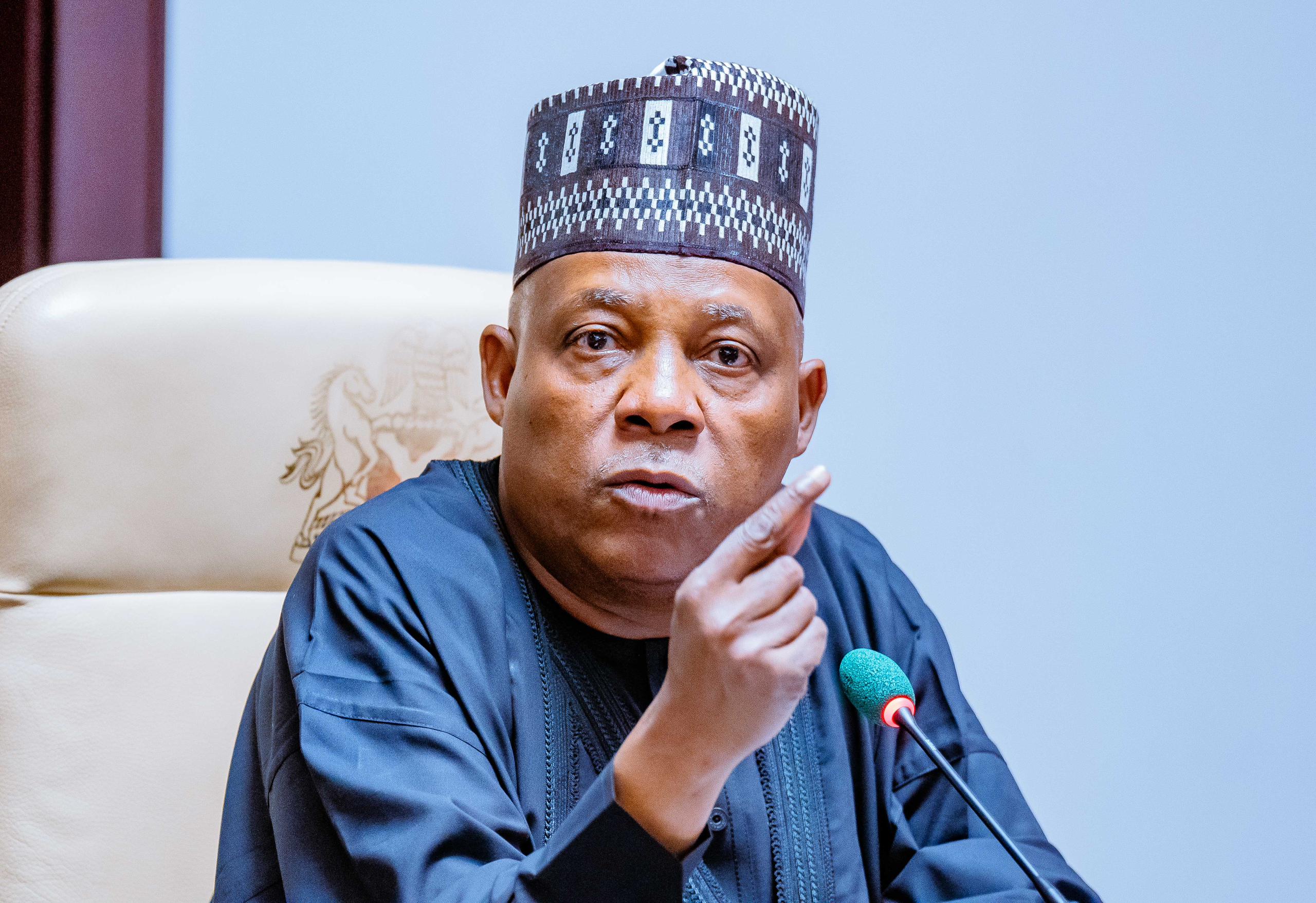By Salisu Sani-Idris
Vice-President Kashim Shettima on Thursday emphasised the urgent need for financial innovation to drive Nigeria’s economic and financial inclusion agenda.
According to Shettima, this is in line with the commitment of the President Bola Tinubu’s administration to bringing over 30 million unbanked Nigerians into the formal financial sector.
The vice-president made the call via a video high-level policy dialogue between the Nigerian government and private sector stakeholders held in Washington DC, the United States capital.
The dialogue brought together government officials, regulators, law enforcement agencies, and fintech industry leaders at the George Washington University.
It aims to leverage innovative approaches to drive a sustainable and inclusive financial system in Nigeria.
The dialogue also focused on addressing critical challenges in Nigeria’s fintech ecosystem, including regulatory oversight, security concerns, and trust issues that have hindered the widespread adoption of innovative financial solutions.
Participants explored strategies to enhance interagency collaboration and strengthen the overall effectiveness of the financial services sector.
The vice-president highlighted Tinubu’s commitment to bringing over 30 million unbanked Nigerians into the formal financial sector in line with the administration’s Renewed Hope Agenda.
“We must develop a sustainable collaboration approach that will facilitate the adoption of inclusive payment to achieve our objective of economic and financial inclusion,” he said.
Earlier, the Deputy Chief of Staff to the President, Sen. Ibrahim Hadejia, sad the Office of the vice president gave priority to economic and financial inclusion.
Hadejia said it was expected that each agency of government would continue to play their statutory role collaboratively to achieve the set objective.
Also, Philip Ikeazor, Deputy Governor of the Central Bank of Nigeria in charge of Financial System Stability, stressed the need for ongoing collaboration among all players to achieve the objectives of the Aso Accord on Economic and Financial Inclusion.
The Director-General, National Information Technology Development Agency (NITDA), Kashifu Abdullahi, proposed “a Digital-first approach and the need to fuse Digital Literacy with Financial literacy as a means to address trust issues affecting the inclusive payment ecosystem.”
The General Manager, Moniepoint, Tosin Eniolorunda, said that addressing trust issues that have slowed down the adoption of innovative Fintech solutions for economic and financial inclusion could be addressed through public-private collaborations.
Dr Nurudeen Zauro, the Technical Advisor to the President on Economic and Financial Inclusion, explained the gathering would eventually evolve into a mechanism that would provide relevant information to the Office of the vice-president.
This, according to him, will facilitate effective decision-making for economic and financial inclusion.
The high-level engagement resulted in various recommendations covering rules, infrastructure, and coordination, with a focus on implementable actions and clear accountabilities.
Other speakers at the event included Inspector-General of Police, Mr Kayode Egbetokun; and the Executive Director of the Center for Curriculum Development and Learning (CCDL) at George Washington University, Prof. Pape Cisse.
Others are the assistant Vice-President at Merrill Lynch Wealth Management, Mr Reginald Emordi; Regional Director for Africa at the Center for International Private Enterprise (CIPE), Mr Lars Benson, among others. (NAN)(www.nannews.ng)
Edited by Rabiu Sani-Ali












